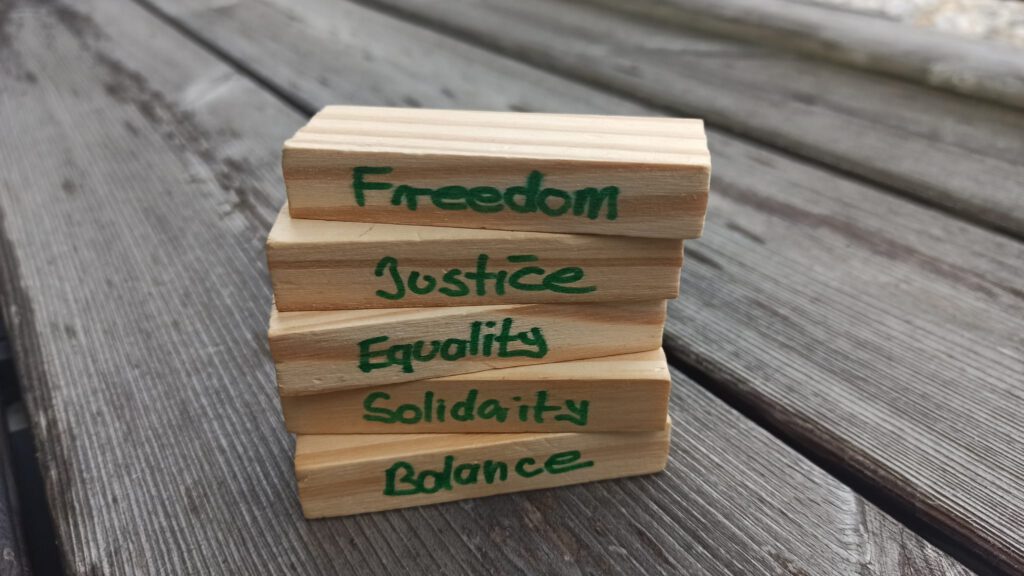
Values are culture dependent. Values that are shared by many cultures include freedom, justice, equality, and solidarity. Here are a few thoughts that come to mind:
- Freedom: It makes me happy to live in a country and to come from a home in which
- I was allowed to enjoy free time in my childhood/youth and was allowed to decide whether and which musical instrument I wanted to play, which club I wanted to join, and the school I wanted to intend.
- I was allowed to decide freely what I would like to do one day, although I was grateful for advice.
- Even at young age, it is therefore important to my wife and me that our child is given freedom of choice. In choosing what to eat, what to do in his free time, etc. This freedom requires a certain tolerance when we realize that our recommendations do not meet with his approval.
- Justice: For me, justice on a global level means the universal observance of human rights/obligations. Therefore, I am grateful to live in a country in which the laws are not only written down, but there is also a functioning legal system that ensures compliance. Through the combination of both, rule system and rule monitoring, it is fair for me in Germany.
My son asks the first questions „What happens to people who steal or seriously injure others?“ and I explain to him that this is a violation of the rules and that this is punished by the justice system with penalties (although I currently still equate justice with police).
- Equality and solidarity: We humans have different strengths, origins, tastes, etc. we are individuals and yet we are – thanks to our constitutional state before the law all equal and have the same rights and obligations.
We do not have the same health, income, or wealth. Solidarity is important, that you don’t care about your fellow human beings. This is what I want to convey to my son. In terms of duties, we ask him, for example, to clear his own plate and cutlery, and then we usually manage to get him to help clear it.
Balance: I would describe balance as the middle of too much and too little. I can also explain this vividly to my son, whether it’s eating (it’s good to eat enough so that we’re not hungry, but we feel unwell if we stuff ourselves completely), sleeping (where is our personal optimum so that we’re not „grumpy“), vacations (only vacations ever don’t make you happy, because everyday life is missing) …
I go into more detail about the balance concept on a global level in the April blog post. At this level, I see the achievement of the United Nations Sustainable Development Goals as an important step towards global balance.
What are the values that you want to follow? What are the values you want to pass on to your child?

